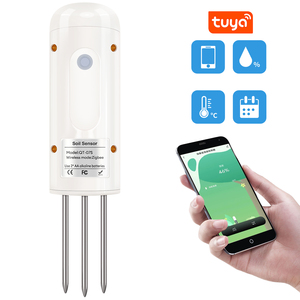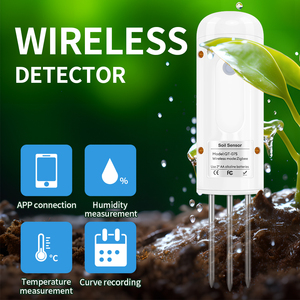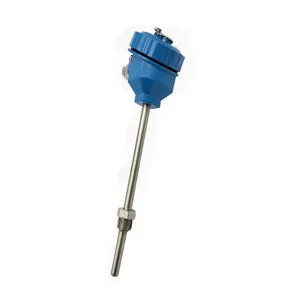Introduction to Wireless Temperature Sensors
Wireless temperature sensors are innovative devices designed to monitor temperature changes without the constraints of traditional wired sensors. They utilize cutting-edge wireless technology to transmit data in real-time, providing valuable insights for various applications in industries such as agriculture, manufacturing, HVAC, and healthcare. Their versatility and ease of integration make them essential tools in modern temperature monitoring solutions.
Types of Wireless Temperature Sensors
There is a diverse range of wireless temperature sensors available in the market, each tailored to meet specific needs and scenarios. Here are some common types:
- Thermocouples: Suitable for high-temperature applications, thermocouples can be found in industrial settings.
- Resistance Temperature Detectors (RTDs): Known for their accuracy and stability, RTDs are commonly used in laboratory and food processing environments.
- Thermistors: These sensors are highly sensitive and are often used in medical applications like patient monitoring.
- Infrared Sensors: Ideal for non-contact measurement, infrared sensors are used in applications requiring rapid data collection, such as HVAC systems.
Applications of Wireless Temperature Sensors
Wireless temperature sensors play a crucial role in numerous industries and applications, enhancing operational efficiency and safety. Some key applications include:
- Food and Beverage Industry: Used for monitoring storage conditions to ensure food safety and compliance with regulations.
- Healthcare: Essential for tracking patient temperatures and ensuring the proper conditions for pharmaceuticals.
- Manufacturing: Enables monitoring of equipment temperatures to prevent overheating and optimize maintenance schedules.
- Agriculture: Helps in managing greenhouse environments and optimizing crop growth by ensuring ideal temperatures.
- HVAC Systems: Offers real-time data to ensure optimal conditions within buildings and improve energy efficiency.
Features and Advantages of Wireless Temperature Sensors
Wireless temperature sensors come equipped with various features that provide distinct advantages over traditional wired systems. Here are some noteworthy features and benefits:
- Real-time Data Transmission: Instantaneous alerts and updates allow for prompt decision-making and response to temperature fluctuations.
- Ease of Installation: Wireless sensors eliminate the need for complex wiring, simplifying setup and reducing installation costs.
- Scalability: These sensors can easily be expanded or reconfigured, making them adaptable to changing requirements.
- Battery Life and Power Efficiency: Many wireless temperature sensors are designed to consume minimal power, extending battery life and reducing the need for frequent maintenance.
- Compatibility with IoT Devices: Many sensors can connect to IoT ecosystems, enabling remote monitoring and data analysis via smartphones or cloud platforms.






















































































































































































































